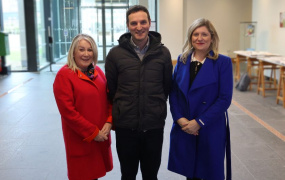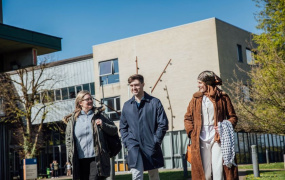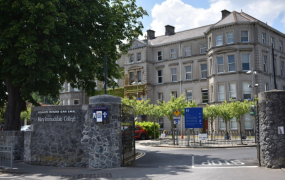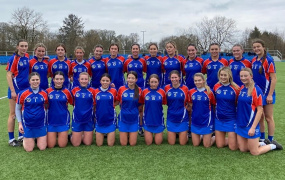Celebrating 60 Years of Philosophy at MIC
About
The College celebrates 60 years of teaching philosophy. We want to invite our former and current students (in both the Faculty of Arts and Education), Philosophy staff, and friends to an evening of talks and dialogue about the importance and relevance of philosophy in today’s world.
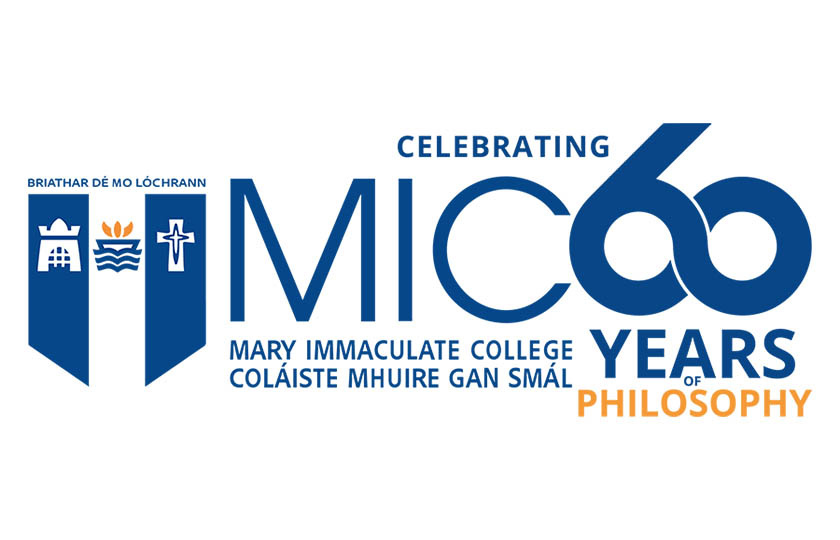
The celebration will take place on Wednesday 12 March, from 2pm to 6.30pm in room G10 in the Foundation Building, MIC Limerick campus.
- Where: Room G10, Foundation Building, MIC Limerick
- When: 12 March 2025
The event will have no cost for attendees, but we ask that you register your attendance at the link below.
| Programme of Events |
|---|
| All talks will take place in Room G10, Foundation Building, MIC Limerick |
| 2pm - 2.30pm - Welcome and brief history of Philosophy at MIC - Dr Daniel Vázquez |
| 2.30pm - 3.30pm - What Ethics Might Be - Prof. Sophie-Grace Chappell |
| 3.30pm - 3.40pm - Coffee break |
| 3.40pm - 4.20pm - Applying It: Philosophical Reaction and Intervention in Parental Discourse - Dr Clare Moriarty |
| 4.20pm- 5.20pm - Towards a Phenomenology of Nature? Thinking beyond Antropocentrism - Prof. Felix Ó Murchadha |
| 5.20pm - 5.30pm - Coffee break |
| 5.30pm - 6.30pm - Panel: The Importance of Studying and Doing Philosophy Speakers: Prof. John Hayes, Dr Christine Ratzlaff and Dr Treasa Campbell Chair: Dr Catherine Kavanagh |
| 7pm - Dinner for speakers and special guests |
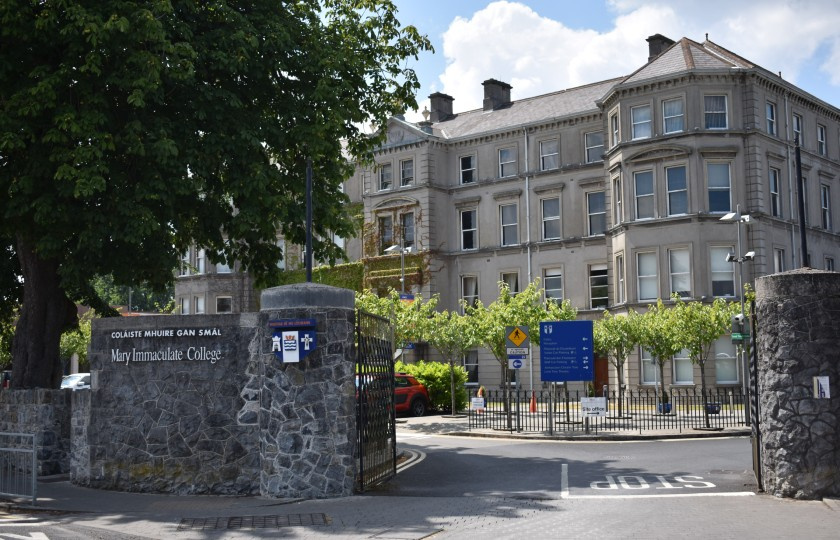
Talks & Panel
Brief History of Philosophy at MIC - Dr Daniel Vázquez
The teaching of philosophy at Mary Immaculate College has a rich history, dating back to 1964 when Sr M. Cabriní Moloney introduced philosophy as a “abhar roghnach” (special subject) where the students had to take their assignments through Irish. Ten years later, philosophy became a core subject for aspiring primary school teachers in the BEd programme. This later led to the establishment of the Department of Philosophy in 1978. This talk will outline some of the highlights in the history of philosophy in MIC and Limerick, from the famous evening Diploma in Philosophy for external students, the foundation of the Limerick Philosophical Society, the life and work of esteemed lecturers in the philosophy of education to recent developments and efforts to promote philosophy in the west of Ireland.
What Ethics Might Be - Prof. Sophie-Grace Chappell
Why isn’t philosophical ethics more interested in epiphanies? I don’t mean that epiphanies are the only thing that ethical philosophers should be allowed to talk about. But I do wonder why moral philosophers don’t more often start with some careful and accurate examination of our experience of value; with some phenomenology, as philosophers call it, some close and detailed descriptive examination of our ethical experience. We hear a lot in philosophy about questions like “What is it like to be a bat?”, and such questions intrigue me too. But what about asking ourselves “What is it like to be a human being?”
Applying It: Philosophical Reaction and Intervention in Parental Discourse - Dr Clare Moriarty
Which topics are worthy of philosophical analysis? The traditional canon supplies us with a set of themes and subjects that typically define the undergraduate curriculum for trainee philosophers. Often, omissions from that catalogue have little to do with philosophical salience and much more to do with accidents of history and culture. I use a case study on interventions on philosophical issues inherent in parenthood and infant care to illustrate how skills honed on more abstract matters can be applied for a more socially valuable and personally fulfilling sense of philosophical engagement.
Towards a Phenomenology of Nature? Thinking beyond Antropocentrism - Prof. Felix Ó Murchadha
Along with God and the self, nature has been declared dead by a number of philosophers in recent times. The fundamental idea is that ‘nature’ as a concept is no longer meaningful for us. Nature either means all there is, in which case it is too general or nature is opposed to something else, generally meaning human beings in some guise (i.e., as culture, artifice, mind etc). In this paper, I will try to show that this is ultimately not a helpful path to take, but that we need to re-think nature as a hermeneutical category analogous to ‘self’ and ‘divinity’, meaning that it does not apply to a being or set of being, but rather to a manner of being. The question of nature philosophically then becomes the question of what it means for something to appear naturally. This paper will explore what that entails and in doing so argue that natural appearing can best be understood in relation to the phenomenological concept of world. However, such a phenomenological account of nature needs to go beyond anthropocentrism and recognize what is distinctive about humans as itself emergent from nature.
Panel: The Importance of Studying and Doing Philosophy
Prof. John Hayes, Dr Christine Ratzlaff and Dr Treasa Campbell
Chair: Dr Catherine Kavanagh
In this panel, former and current MIC staff and alumni will share their perspectives and experiences (as philosophers, researchers and educators) that inform their views on why studying and engaging with philosophy is important, relevant, and fun.
- About
- Talks & Panel



